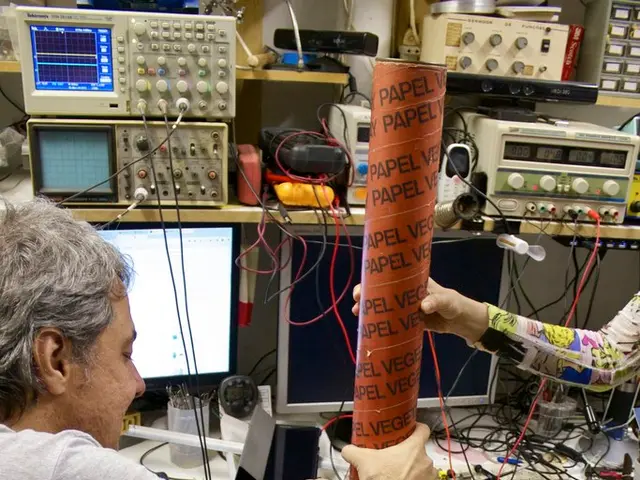Autism Research: Genes, Environment, and Controversy
Discrediting RFK Jr.'s Autism Assertions: Specialist Opinions & Parental Viewpoints
Autism studies have identified both genetic and environmental elements as contributors to this complex condition.
- Genetics: Autism has a strong genetic foundation, with inherited genetic factors playing a vital role. Twin and family studies confirm that if one identical twin has autism, the other may have a higher likelihood of also having autism. Specific genetic mutations linked to brain development and synaptic function are associated with autism [4].
- Environment: While they don't cause autism alone, environmental factors can impact the development of autism in genetically predisposed individuals. These factors might include parental age, exposure to certain chemicals, and complications during birth [1][4].
Autism and Vaccines
The scientific consensus is unequivocal: vaccines do not cause autism. Claims linking vaccines to autism are based on misinterpreted correlations rather than causation [2][5].
Kennedy's Controversial Stance
Robert F. Kennedy Jr., a vocal advocate, has raised questions about the safety of vaccines and their potential link to autism, a claim that contradicts the scientific consensus. His views have fueled ongoing discussions and controversies in the field, despite the absence of scientific evidence supporting his claims [1][3][5].
Recently, Kennedy suggested that severe cases of autism are on the rise. However, scientific studies do not back this assertion, instead indicating that the increase in diagnosed cases is mostly due to improved awareness, broader diagnostic criteria, and enhanced screening [1][3][5].
The Coalition of Autism Scientists
In response to concerns about the administration's approach to autism research and the exclusion of external experts from the decision-making process, a coalition of scientists, known as the Coalition of Autism Scientists, has been formed. This alliance, now composed of 258 members and growing, aims to provide a scientific perspective in ongoing discussions about autism causes and research directions.
Tager-Flusberg's coalition underscores the shared commitment to ethical research practices, robust scientific evidence, and inclusivity in shaping autism research agendas, emphasizing the need for collaboration among scientists, advocates, and individuals with autism [3].
- The Coalition of Autism Scientists, with over 258 members, emphasizes the importance of ethical research practices, robust scientific evidence, and inclusivity to help shape autism research agendas, especially in the areas of health-and-wellness, mental-health, and science.
- While genetics play a significant role in autism, environment also contributes to its development, notably through parental age, exposure to certain chemicals, and complications during birth, as highlighted in autism research.
- In contrast to some claims, vaccines have been scientifically proven not to cause autism, as supported by twin and family studies, genetic research, and numerous scientific reports [2][4][5].






